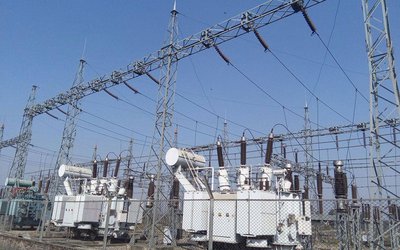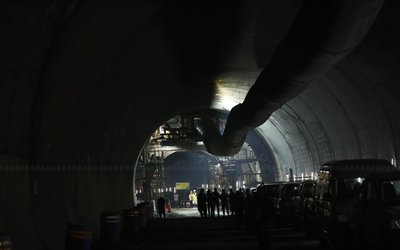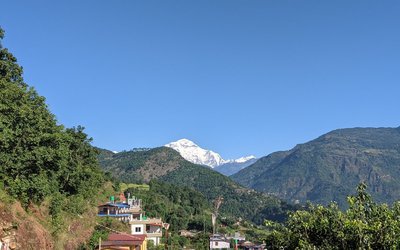Minister for Population and Environment Jay Dev Joshi told the opening session of the working groups in the NAP formulation process that the National Adaptation Plan (NAP) should deliver adaptation services to the poor and climate vulnerable people. Our understanding, commitment and hard work will help develop practical NAP to address climate change impacts and reduce climate vulnerability.
The Ministry of Population and Environment (MoPE) had organised an interaction on 6-7 January 2017 to better understand the roles and responsibilities of the working groups in NAP formulation by developing common understanding on the NAP process and its outcome, and on integration of climate change adaptation into development process in order to reduce climate vulnerability. The interaction was attended by coordinators, deputy-coordinators and member-secretaries of the 7 thematic (agriculture and food security, climate-induced disasters, forests and biodiversity, health (water and sanitation), tourism-natural and cultural heritage, urban settlements and infrastructure, and water resources and energy) and 2 cross-cutting (gender and social inclusion, and livelihood and governance) working groups, led by Joint-Secretaries of the concerned ministries. For example, the thematic working group on agriculture and food security is coordinated by the designated Joint-Secretary of the Ministry of Agriculture Development. The event was also attended by the representatives of the supporting organisations such as Practical Action, ICIMOD, NCCSP, WWF and CARE Nepal, and other organisations. The MoPE launched the NAP process in September 2015 and mobilised a knowledge-based team to support the working groups in May 2016.
Addressing the participants, Janak Raj Chaudhary, chairperson of the Parliamentary Committee on Environment Protection, urged, inter alia, to report to the Committee on the outcome and progress of the NAP process regularly. Dr. Prabhu Budhathoki, Member of the National Planning Commission, emphasised the need to integrate national interests and priorities into the NAP, access resources for its implementation and mainstream adaptation into infrastructure sector. Dr. Bishwa Nath Oli, Secretary at MoPE, informed about NAP preparation in 6 countries and MoPE's emphasis in engaging working groups to formulate the NAP. Dr. Rishi Ram Sharma, Director-General at Department of Hydrology and Meteorology, informed about the importance and availability of climate data. Achyut Luintel, Regional Director at Practical Action, South Asia Regional Office, and Santosh Nepal, Senior Director at WWF informed about their continued commitment to support the NAP process at its different stages. Dr. Ram P. Lamsal, Joint-Secretary at MoPE, emphasised on the urgency of developing the NAP to build adaptive capacity of the climate vulnerable communities, and ecosystems as a part of implementation of the Paris Agreement and Nepal's Nationally Determined Contribution (NDC).
Dr. Rishi R. Sharma shared the key outcomes of the 2015 study on climate and climate variability over Nepal, and Naresh Sharma, Chief of Climate Finance Management Section and NAP Coordinator at MoPE, elaborated the NAP process with global and national perspectives. Participants were informed about key differences between NAPA and NAP, guiding principles for NAP formulation, and experiences of other countries in NAP formulation. It also discussed on approaches, updates and roles of the working groups, framework on vulnerability and risk assessments, working groups meetings, finding ways in integrating climate change adaptation (CCA) into policies, and programmes, and indicative content of the NAP document. Dr. B. N. Oli, Secretary, chaired and led the whole programme. Coordinators or deputy coordinators present affirmed their active roles in coordinating all activities of the working groups, along with the commitment of the supporting organisations in the NAP process.
Participants urged the need for communicating NAP-related information to raise awareness, understand DHM as public authority for climate data, focus on providing weather services, enhance capacity building, promote integration of CCA into policies and programmes, and conduct meeting at secretary level to expedite the NAP formulation process. Participants underscored the importance of utilising the climate data, 'learning' from similar activities, developing performance/result-based monitoring system, considering the medium and long-term period, identifying the root cause of climate change, and organising content-based consultations. One of the participants informed that people are converting rice field into 'apple farm' in Jumla. If temperature increases, people might further suffer as they might not benefit from apple farming as well.
This interaction has been the building block for NAP process, and provided a good opportunity to interact each other to avoid duplication of efforts, and address 'untouched' areas in the national march of addressing climate change and in building adaptive capacity in the medium- and long-term.
Working group coordinators and/or deputy-coordinators reaffirmed their strong commitment to engage in the process, contribute to make the NAP practical, build on lessons learned from adaptation projects, ensure engagement of gender focal point in concerned ministries, bring the climate change issue at the local level, promote research to understand climate change impacts on health, promote integration of CCA, analyse climate trend and scenario to the earliest possible, engage NPC and Ministry of Finance, and further ensure ownership of the NAP. This event is expected to expedite the NAP formulation process and make the NAP a guiding document to mobilise internal resources and access climate finance from within and outside the climate change regime.
Ten ministries are directly engaged in coordinating the NAP formulation process, and as of December 2016, 172 members (institutions or experts) of 9 multi-stakeholder working groups will directly contribute in all steps of the NAP process. Working groups are represented from government institutions, local bodies, NGOs, federations and networks, academe, indigenous communities, women, media and private sector and may function as service providers, beneficiaries, enablers and advocates. This NAP process is supported by UK-Aid, ACT/OPM and Practical Action. In November 2016, Nepal has accessed Green Climate Fund (GCF) resources to advance the NAP process, as a first country, and UNEP will perform as the GCF Delivery Partner for this support.

Batu Uprety
Former Joint-Secretary and Chief of Climate Change Management Division, Ministry of Environment (then), and former Team Leader, National Adaptation Plan (NAP) formulation process. E-mail: upretybk@gmail.com
- Institutional Response And Leadership on Climate Negotiations
- Mar 28, 2024
- The Wire Without A Current
- Mar 20, 2024
- Call For Degazetting the Shivapuri-Nagarjun National Park
- Feb 08, 2024
- Advancing Need-Based Adaptation Options
- Jan 14, 2024
- Decoding The Mountain Call Into Action At Home
- Dec 19, 2023















